Experts and scholars from 17 countries convene to showcase the research fervor of AI in medical and health fields
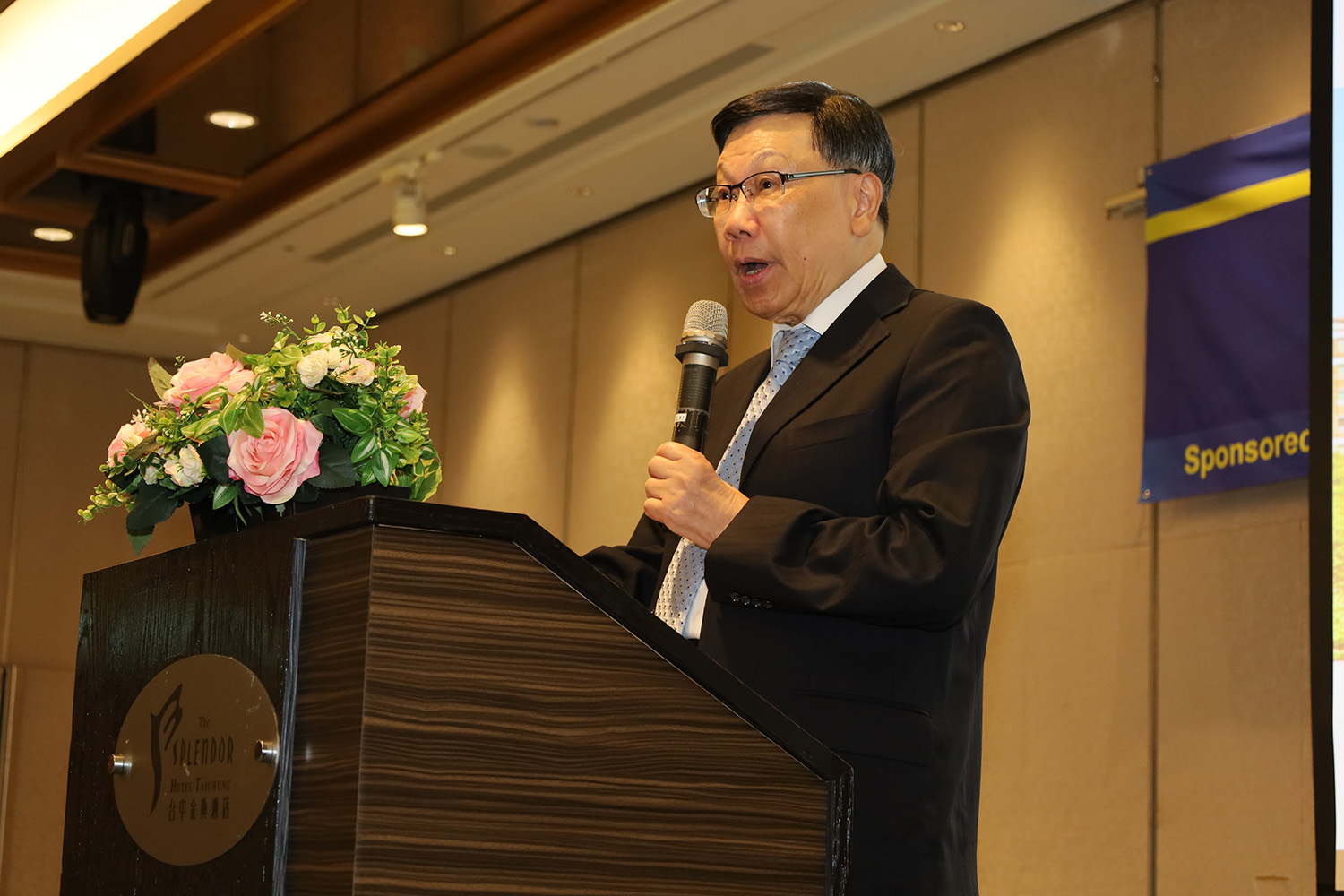
Asia University President Jeffrey J.P. Tsai stated that the theme of this conference aligns with the “Healthy Taiwan” national blueprint proposed by President Lai.
Asia University, together with IEEE (Institute of Electrical and Electronics Engineers), the National Science and Technology Council, and China Medical University Hospital, co-organized the 2025 AI × Medicine, Health & Care International Conference (AIxMHC 2025). Held from October 13 to 15 in hybrid format—on-site at the Splendor Hotel in Taichung and online—the conference brought together experts and scholars from 17 countries and regions. A total of 112 papers were submitted, demonstrating strong international engagement and research momentum in the application of AI to medicine and health.
Conference Chair and Asia University President Jeffrey J.P. Tsai stated that since President Lai Ching-te took office, he has launched the “National Project of Hope,” with the vision of building Taiwan into a “Smart Technology Island.” The National Science and Technology Council also promotes strategic industries such as semiconductors, artificial intelligence, communications, and smart healthcare to accelerate the realization of holistic health and care, thereby fulfilling the “Healthy Taiwan” national blueprint. This conference echoes that national direction by combining leading global research forces to promote cross-disciplinary collaboration and innovative applications—jointly exploring how AI can drive a new era in health and care.
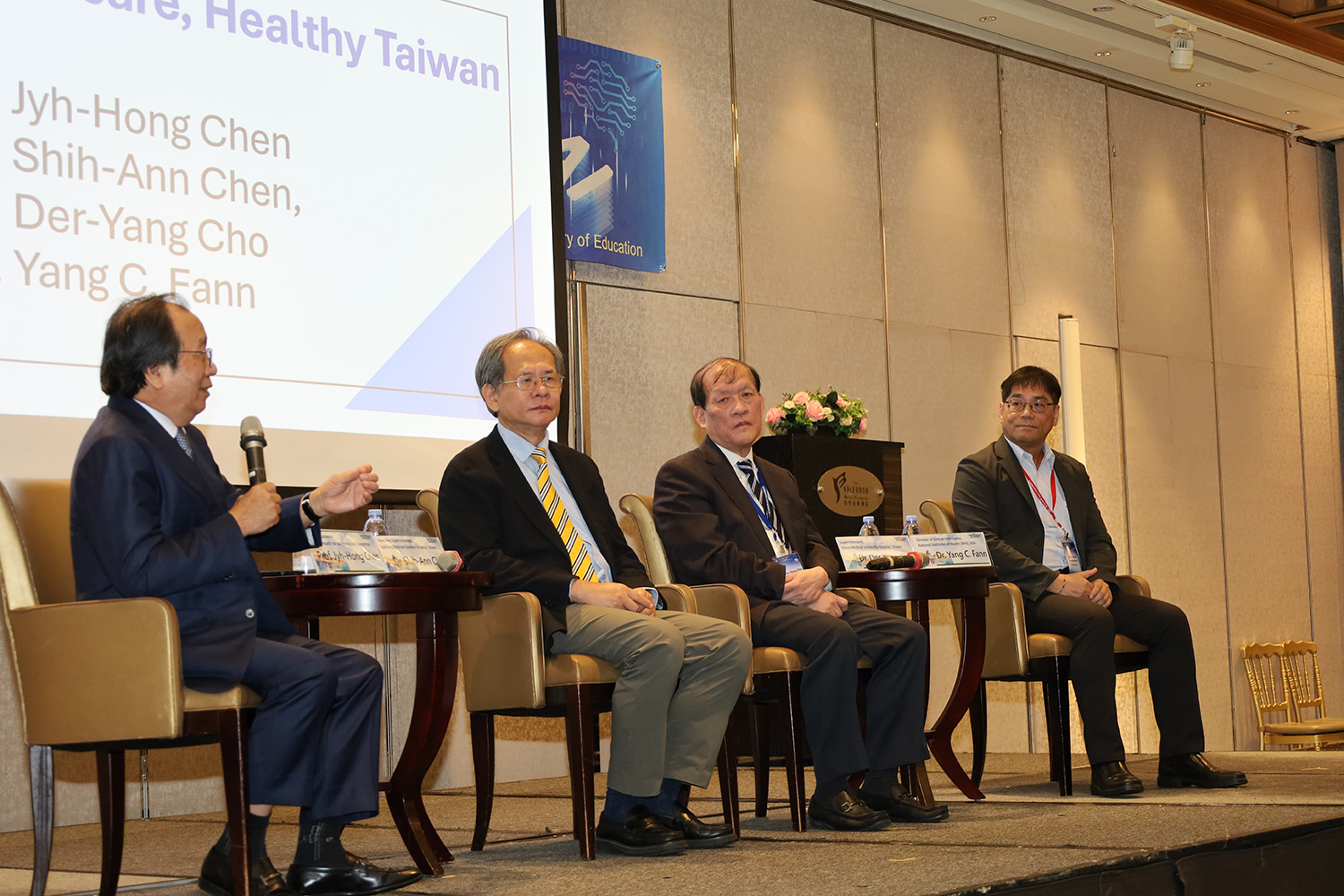
One of the highlights of the conference — (from left to right) moderated by Prof. Jyh-Hong Chen, Deputy Convener of the Healthy Taiwan Promotion Committee, featuring Dr. Shih-Ann Chen, Honorary Superintendent of Taichung Veterans General Hospital; Dr. Der-Yang Cho, Superintendent of China Medical University Hospital; and Dr. Yang C. Fann (in a personal capacity) from the U.S. NIH Clinical Informatics Department.
In his remarks, President Tsai emphasized that AI is thoroughly reshaping all facets of medicine and healthcare—from precision diagnostics and personalized treatments to predictive analytics and intelligent decision support. AI is redefining disease prevention, extending beyond clinical medicine, and challenging how technology can support mental health and foster well-being.
A highlight of the conference, the “Smart Healthcare, Healthy Taiwan” forum, was moderated by Prof. Jyh-Hong Chen, Deputy Convener of the Healthy Taiwan Promotion Committee, featuring Dr. Shih-Ann Chen, Honorary Superintendent of Taichung Veterans General Hospital; Dr. Der-Yang Cho, Superintendent of China Medical University Hospital; and Dr. Yang C. Fann (in a personal capacity) from the NIH. The panel explored the implementation and future prospects of smart healthcare in Taiwan—from clinical applications to public health policy—analyzing how AI technologies can deliver more humane and innovative care for national health.
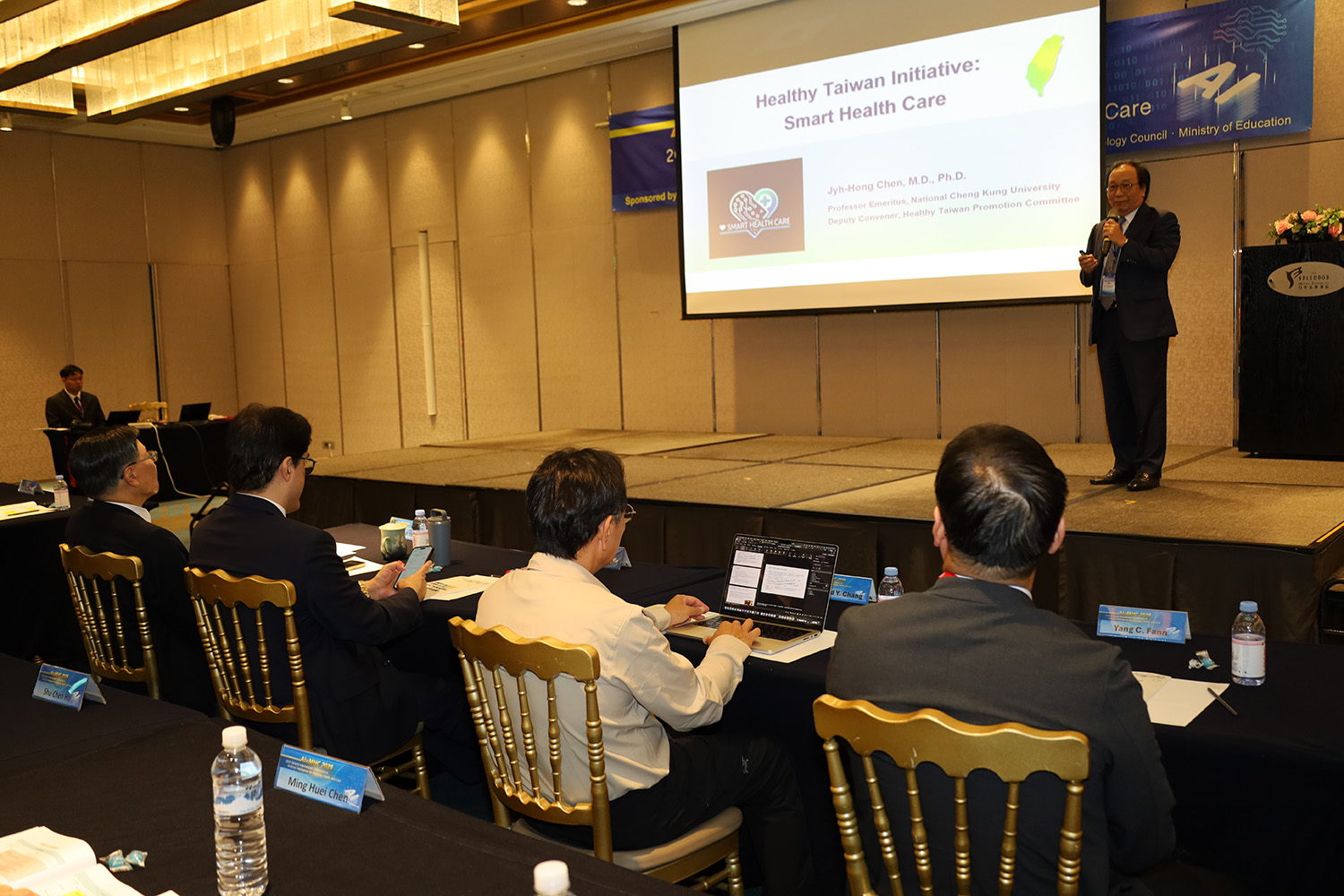
Prof. Jyh-Hong Chen, Deputy Convener of the Healthy Taiwan Promotion Committee, discusses the “Healthy Taiwan Deep Cultivation Plan.”
Referring to President Lai’s National Day speech, themed “A New Taiwan Rising Amid Changes,” Prof. Chen noted that the “Healthy Taiwan Deep Cultivation Plan” aims to provide citizens with higher-quality healthcare services. The plan strengthens regional joint prevention strategies, realizes vertical integration of tiered medical care, optimizes working conditions for medical staff, enhances their professional value, and incorporates technology to improve efficiency—ultimately building a sustainable, smart, green, and resilient healthcare system.
Dr. Shih-Ann Chen discussed AI applications in medicine, dividing them into areas such as health economics, telemedicine and home care, precision medicine, and predictive and preventive medicine. In cardiology, AI can be applied to cardiovascular imaging, electrophysiology, and interventional cardiology. From a commercial perspective, the success of AI depends largely on product form—wearable devices being the most common. Through AI model training, these devices can serve as powerful predictive tools.
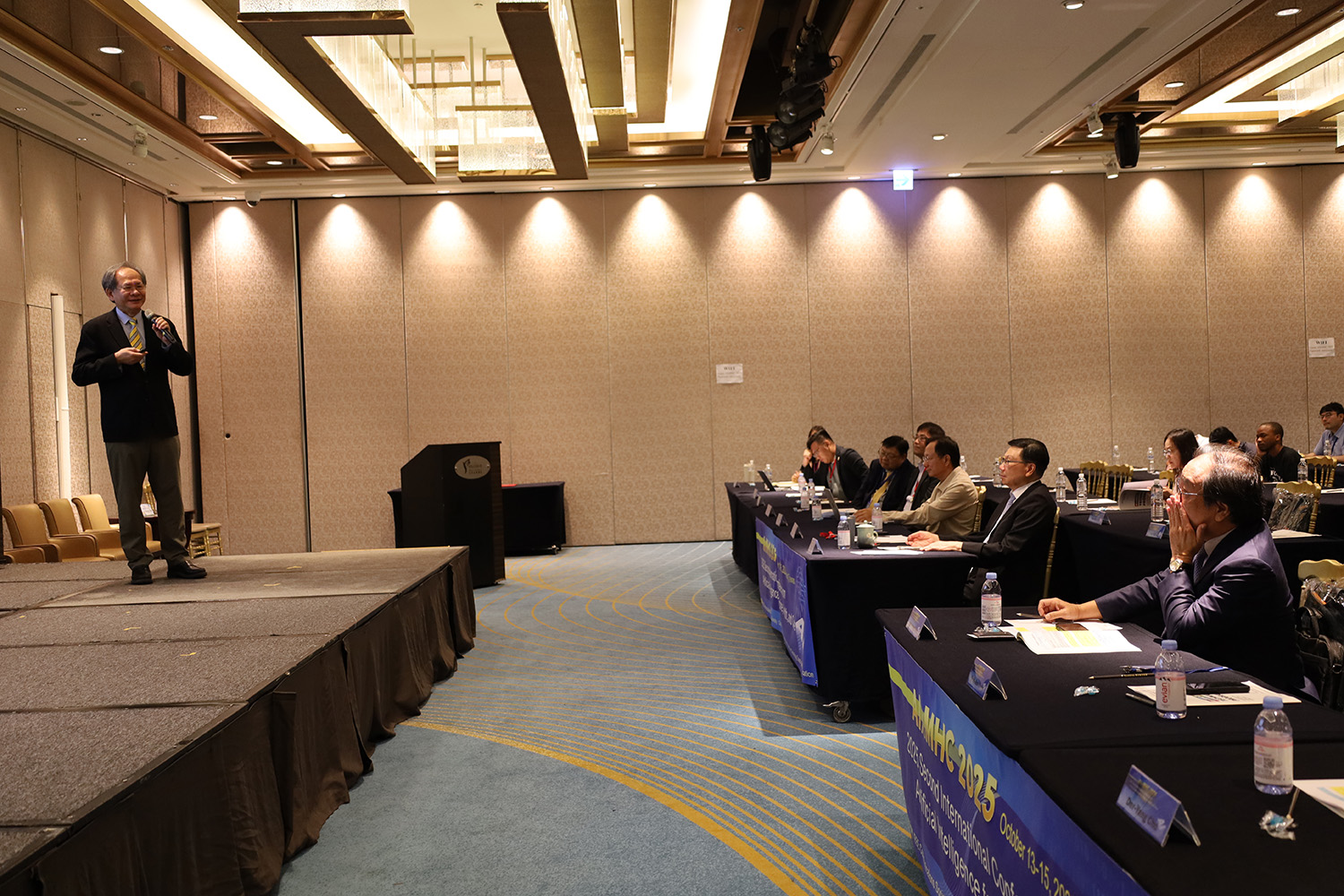
Dr. Shih-Ann Chen, Honorary Superintendent of Taichung Veterans General Hospital, talks about AI applications in medicine.
Dr. Der-Yang Cho shared how China Medical University Hospital has deeply integrated AI and big data into clinical workflows such as AI-assisted diagnosis, smart medical record generation, and optimized nursing documentation, greatly improving efficiency and accuracy. These innovations have earned the hospital recognition, including the “Medical Technology Contribution Award.” He emphasized that by embedding AI into medical decision-making and management, CMUH can achieve more precise diagnosis, improve treatment efficiency, shorten waiting times, and deliver safer and more personalized medical experiences.
Dr. Yang C. Fann stated that smart healthcare ecosystems are gradually transforming human life. In the future, health management trends will shift toward “self-determined health decisions” rather than passive reliance on medical professionals. Hospitals will become increasingly virtualized; people will receive AI-provided health information as if “a physician is always by their side.” Before physical consultations, patients may use tele-imaging and decide whether an in-person visit is necessary, allowing community-based healthcare systems to flourish.
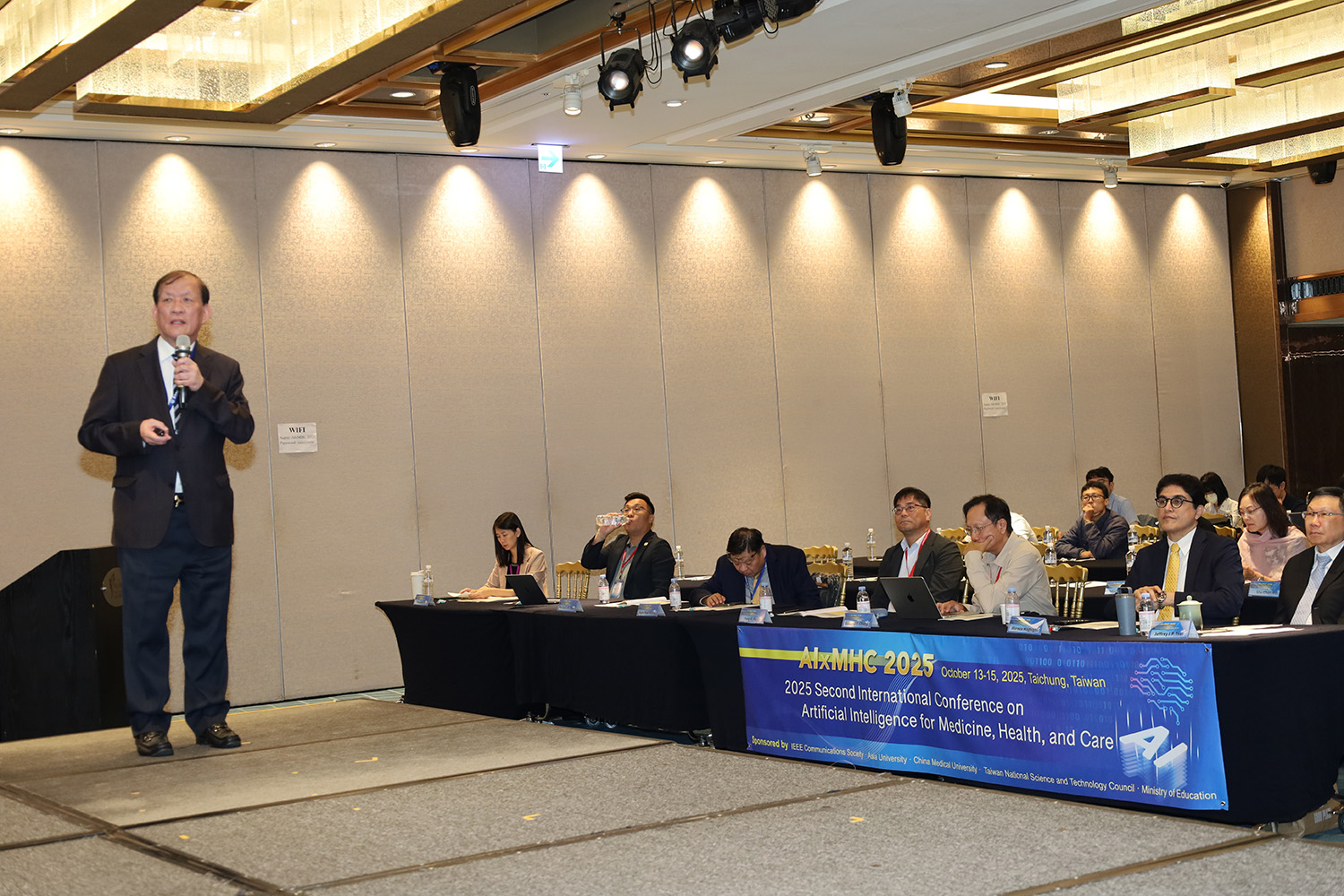
Dr. Der-Yang Cho, Superintendent of China Medical University Hospital, shares how the hospital uses AI and big data analytics to enhance clinical decision-making and management.
On the opening day, the conference featured a series of prominent keynote lectures. Dr. Alireza Haghighi, Co-founder of NucleicAI and Assistant Professor at Harvard Medical School, delivered a talk titled “Genomics and Artificial Intelligence: Transforming the Future of Precision Medicine.” He analyzed how AI and genomics jointly advance precision medicine through next-generation sequencing (NGS) and large-scale biological databases, enabling AI to rapidly interpret complex multi-omics data and uncover molecular mechanisms behind diseases. Dr. Haghighi shared multiple international collaboration cases showing how AI facilitates disease prediction, personalized therapy design, and drug development—realizing the vision of “one person, one therapy.” He also underscored the challenges of data privacy, ethical oversight, and transnational regulation as AI enters clinical practice.
Following him, Prof. Soumya Raychaudhuri of Harvard University gave an online keynote “Using large scale genomic data to define immune mechanisms of complex autoimmune disease.” Using rheumatoid arthritis as a case study, he described how his team integrated AI with single-cell RNA sequencing (scRNA-seq), ATAC-seq, and gene editing to achieve significant breakthroughs. The analysis identified over 150 disease-associated risk loci and revealed key translational pathways of immune cells during inflammation. He emphasized that AI empowers researchers to understand immune mechanisms at the cellular level, paving the way for personalized immunotherapy—marking a milestone in understanding complex biological systems.
Next, Edward Y. Chang of Stanford University, USA, delivered a keynote titled “From Generative AI to AGI: Multi-LLM Agent Collaboration as a Path Forward in Healthcare.” He outlined forward-looking perspectives on the evolution of large language models (LLMs) and proposed that true AGI may arise from collaborative multi-model, multi-agent systems (Multi-LLM Agent Collaboration). Using medical decision support as an example, he demonstrated how different AI models can collaborate in clinical diagnosis, drug response prediction, and multimodal data integration, forming systems capable of continuous memory, critical reasoning, and cross-domain learning. He emphasized that such architectures could enhance the reliability and ethical controllability of medical AI, offering a practical path toward safe and trustworthy AGI in healthcare.
Program Chair Prof. Hsu Ching-hsien, Dean of the College of Information and Electrical Engineering at Asia University, remarked that AIxMHC 2025 is not only an international academic gathering but also a vital platform bridging technology and humanity, innovation and care. He hopes the conference will inspire further cross-disciplinary collaboration and creative thinking, ensuring that AI becomes not only a driver of medical advancement but also a key force in enhancing human health and well-being.
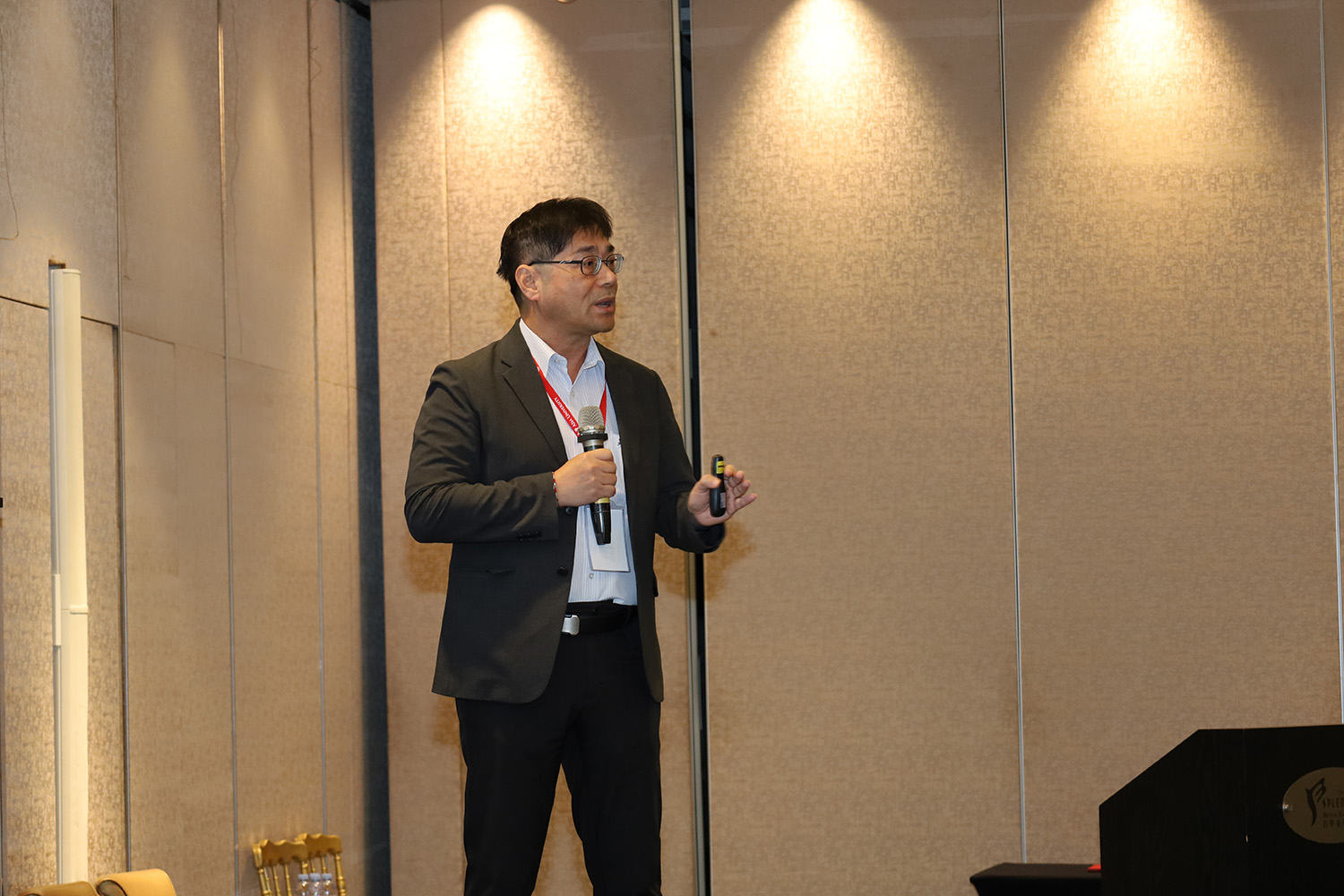
Dr. Yang C. Fann from the U.S. NIH (in a personal capacity) discusses how smart healthcare chains are transforming human life.
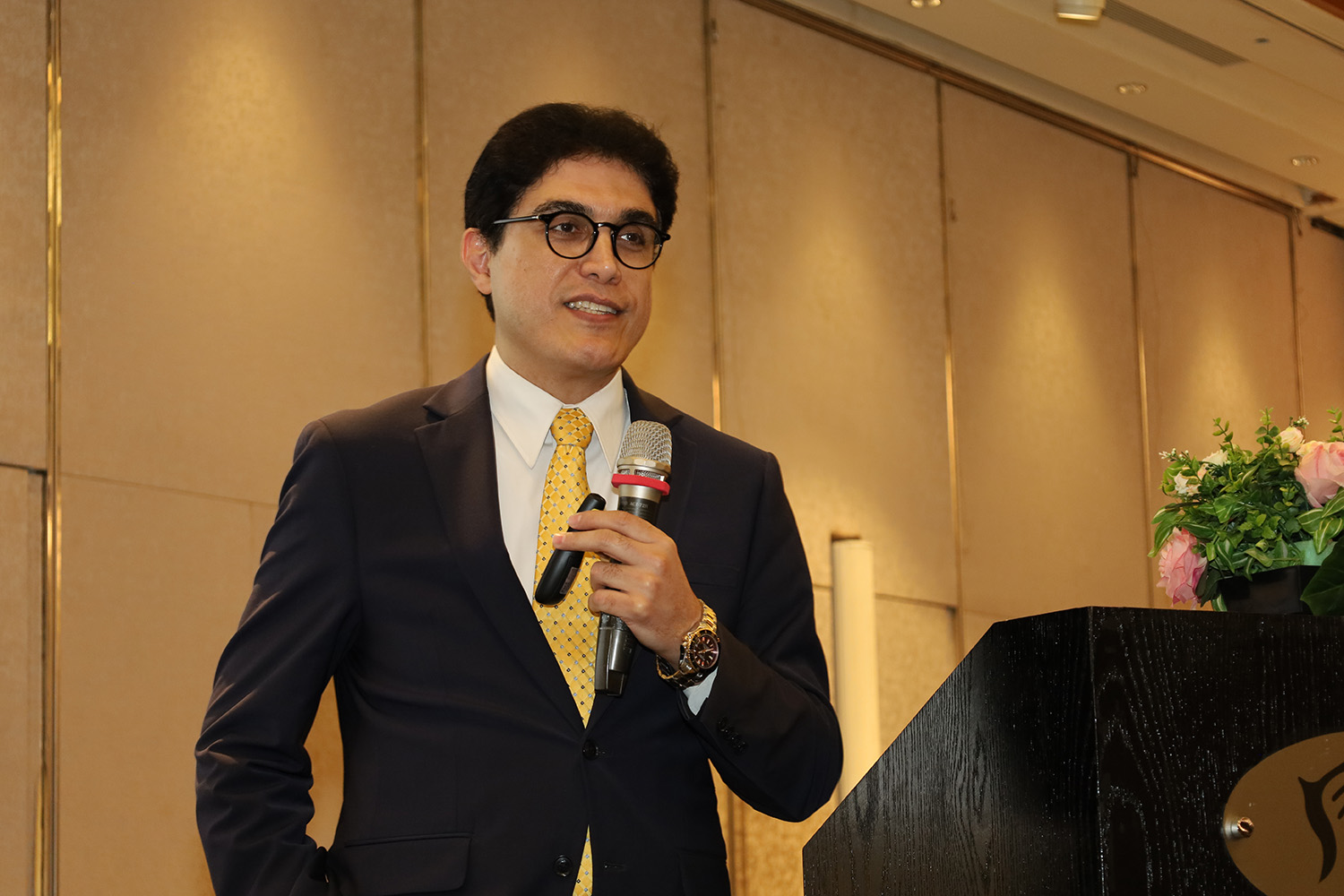
Dr. Alireza Haghighi, Professor at Harvard Medical School, delivered an in-depth analysis on how artificial intelligence integrates with genomics, driving precision medicine into a new era.
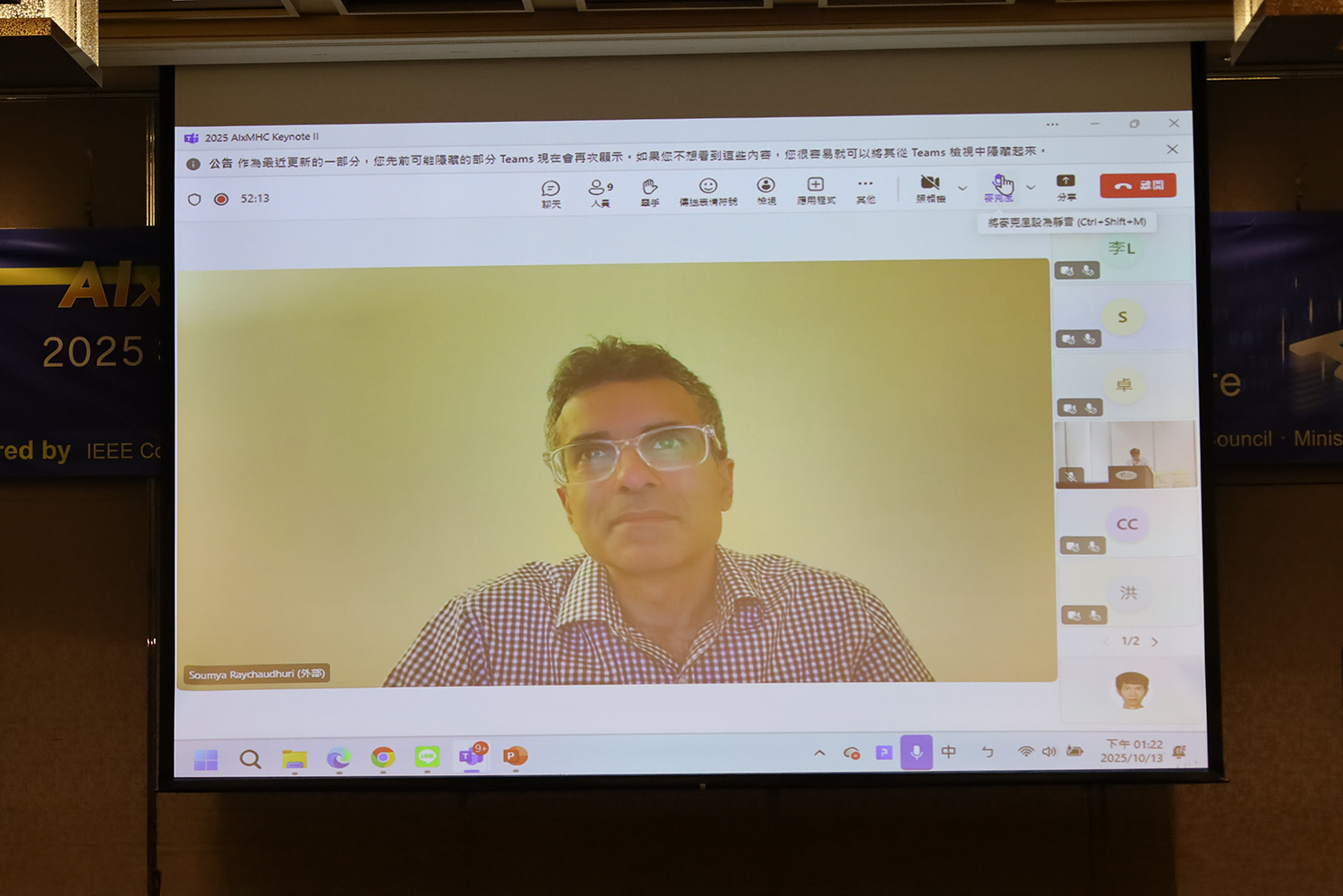
Prof. Soumya Raychaudhuri of Harvard Medical School gave an online keynote speech on “Using large scale genomic data to define immune mechanisms of complex autoimmune disease.”
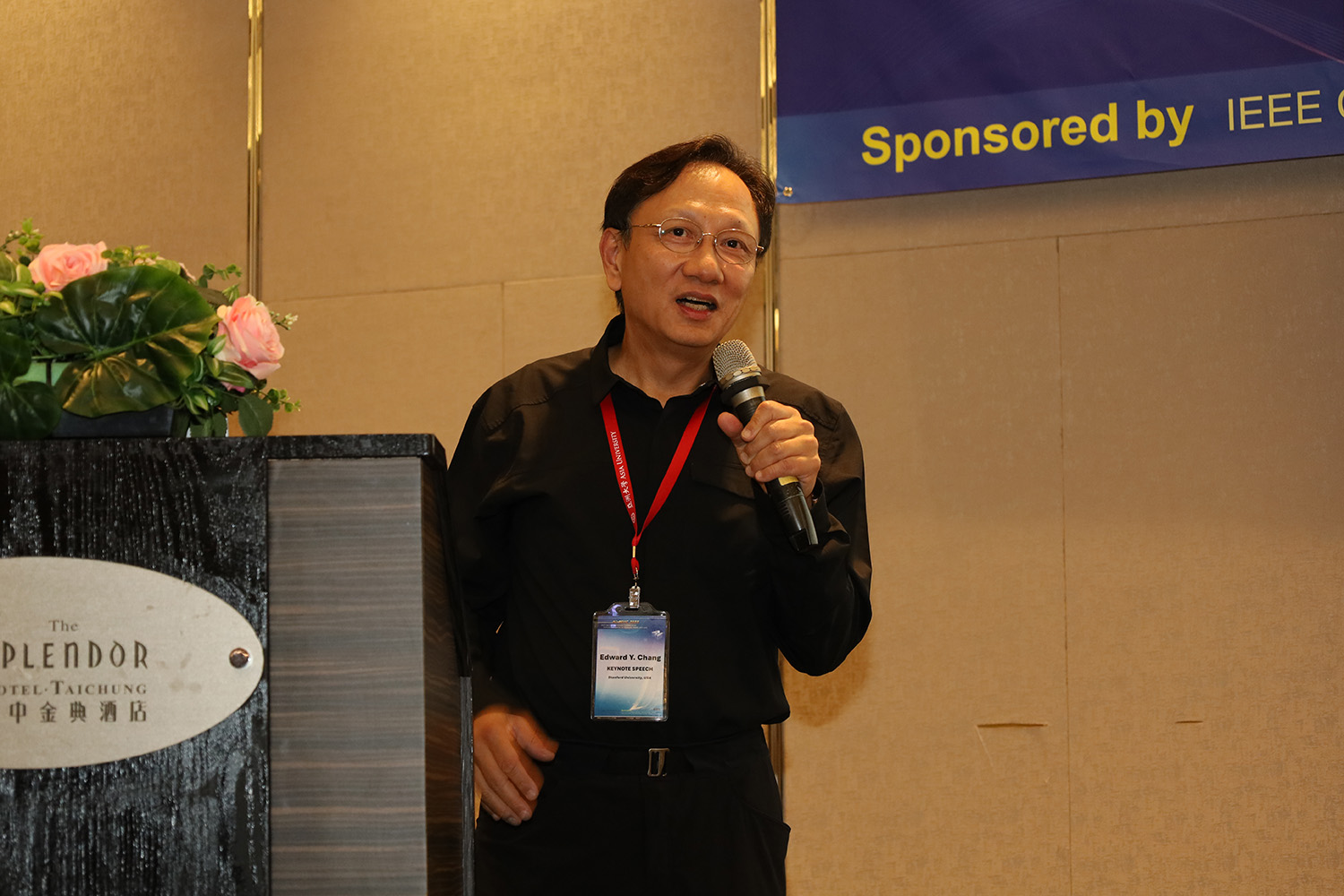
Prof. Edward Y. Chang, Adjunct Professor at Stanford University, presented forward-looking insights into the future applications of AI in medicine.
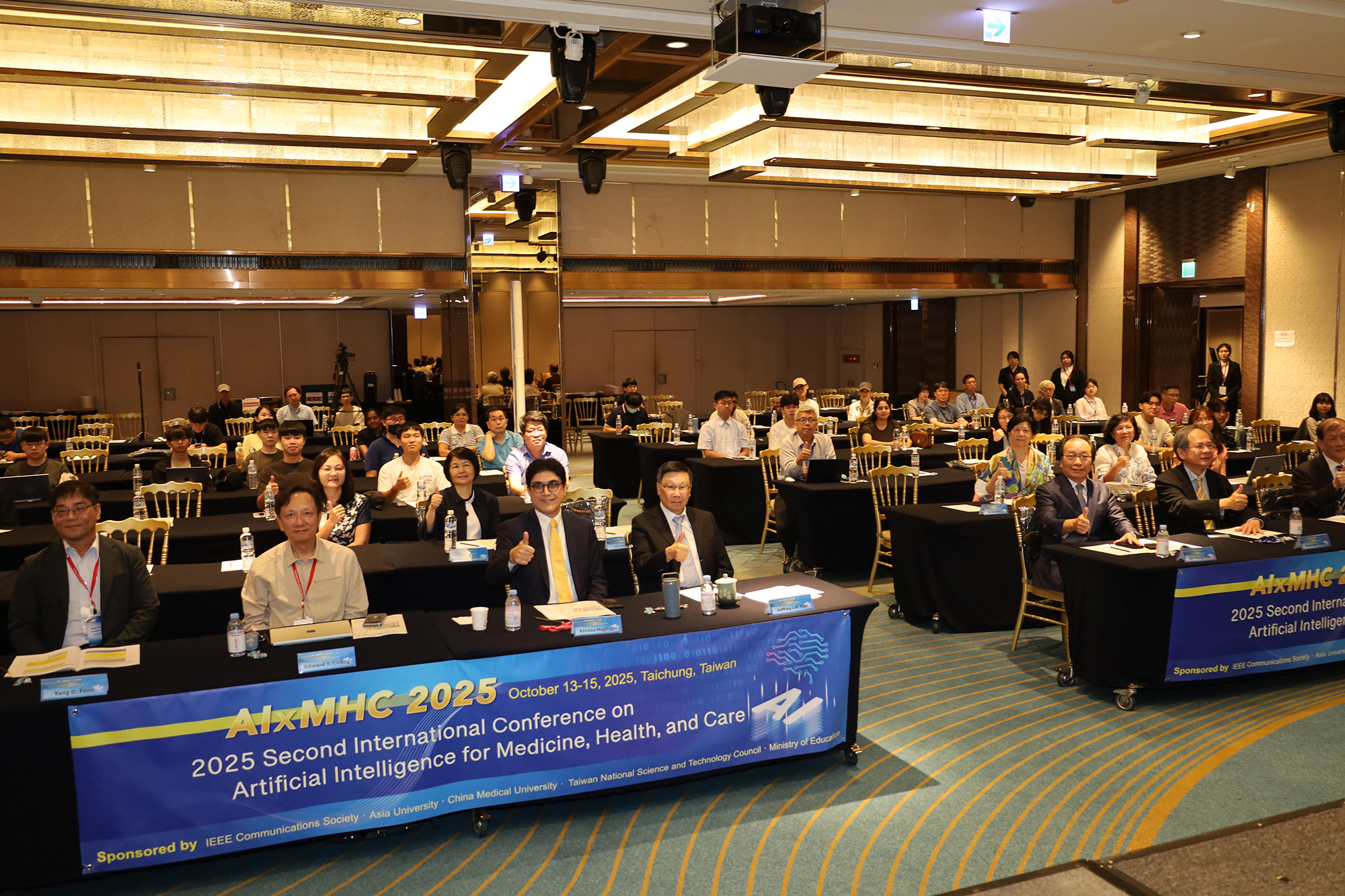
Asia University President Jeffrey J.P. Tsai (front row, fourth from left), Dr. Alireza Haghighi (front row, third from left), Edward Y. Chang (front row, second from left), Dr. Yang C. Fann, and participating experts and scholars pose for a group photo.
